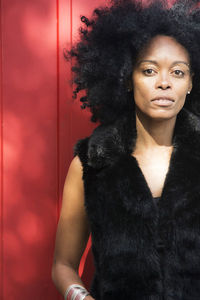"Characters Come to Me Already Having Lives of Their Own" Kagiso Lesego Molope on her Poignant South African LGBT Novel
In Kagiso Lesego Molope's Such a Lonely, Lovely Road (Mawenzi House), Kabelo Mosala is the perfect child. His parents love to show him off, from his early school achievements to when he brings home a prestigious medical degree and joins his father's practice. What his parents don't know though is that Kabelo is gay and deeply in love with a childhood friend. Coming out in South Africa means risking scorn and rejection by his family and the Black community, but Kabelo can't keep his love - and himself - a secret any longer.
Poignant, raw, and unforgettable, Such a Lonely, Lovely Road tackles complex social and political issues through the lens of a powerful and memorable character. We're excited to welcome Kagiso, who is South African by birth and who has a novel, The Mending Season, on the school curriculum in her home country, to Open Book today to talk about Kabelo and his journey.
She tells us about how characters can be like babies in one sense, about the intimate appeal of writing in first person, and what she and Kabelo have in common.
Open Book:
Tell us about the main character in your new book.
Kagiso Lesego Molope:
Kabelo Mosala is the only son of two middle-class parents who raise him in a community that sees him as model citizen. The people put their hopes of the future in him, but their expectations are stifling for a man who doesn’t feel he fits in. Emotionally Kabelo is a very tortured man, being gay and struggling to come out.
OB:
Some writers feel characters take on a "life of their own" during the writing process. Do you agree with this, or is a writer always in control?
KLM:
I never see myself as being in control. The characters come to me already having lives of their own. I see the writing process as a journey in getting acquainted with them, their needs, their likes, and their lives.
OB:
How do you choose names for your characters?
KLM:
I sort of tend to know the person before the name. A bit like meeting a baby for the first time: you wait until they’re born and see what name suits them.
OB:
Do you find yourself gravitating to one narrative point of view (e.g. first person, third person)? If so, what do you like about building a character in that particular format?
Your CanLit News
Subscribe to Open Book’s newsletter to get local book events, literary content, writing tips, and more in your inbox
KLM:
I tend to gravitate towards first person narrative because I think it offers more intimacy - both between myself and the character and between the character and the reader.
OB:
What is your approach to crafting dialogue, particularly for your main character? Do you have any tips about writing dialogue for aspiring and emerging writers?
KLM:
I don’t have a particular method, but a friend once told me he was reading plays just to get more familiar with writing dialogue. I can see how that could work.
OB:
Do you have anything in common with your main character? What parts of yourself do you see in him or her, and what is particularly different?
KLM:
He and I come from the same places, the same neighbourhood. I understand his struggle with trying to fully get to know himself while also trying to fulfil an entire community’s expectations. We’re from that generation that came of age post-apartheid. The hopes of our communities are put on us, so in that way, yes, we have a lot in common. But he’s maybe a bit too tortured, I don’t know. Probably people who know me would say we also have that in common.
OB:
If you had to describe your main character in three words, what would those words be?
KLM:
Anxious, tender man.
OB:
How clearly do you see your characters' physical appearances while writing, and how relevant are their appearances to your writing process?
KLM:
In this book I knew them very intimately. I could smell their cologne, I knew how it felt for them to touch things, how pain and joy traveled through their bodies. It was a very moving, sometimes frightening experience.
_________________________________
Kagiso Lesego Molope was born and educated in South Africa. Her first novel, Dancing in the Dust (Mawenzi House) was on the IBBY Honour List for 2006. Her second novel, The Mending Season, was chosen to be on the school curriculum in South Africa. This Book Betrays My Brother was awarded the Percy Fitzpatrick Prize by the English Academy of Southern Africa, where it was first published. She lives in Ottawa.




